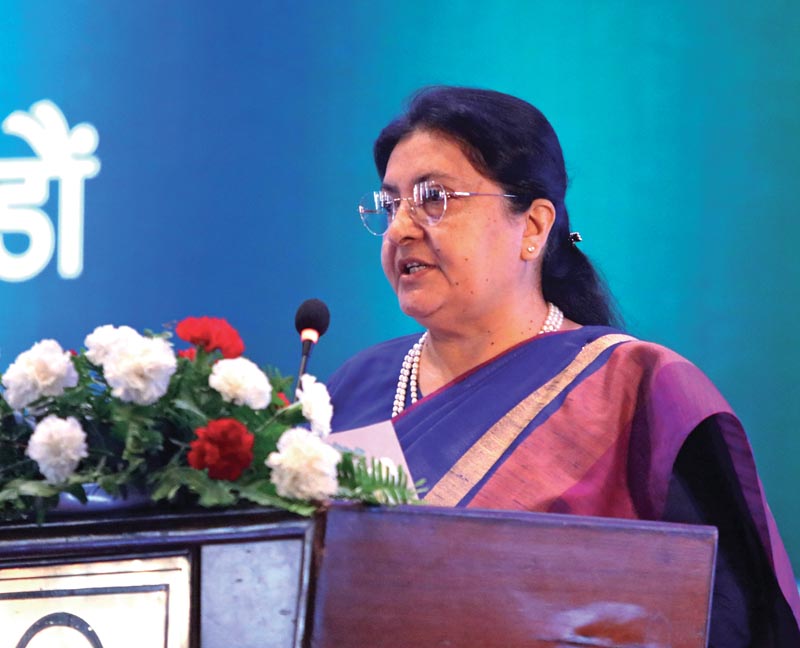COVID-19 has risked further aggravating inequalities: Prez Bhandari
KATHMANDU: President Bidya Devi Bhandari said that ensuring timely medical care, equal access to vaccines and robust recovery plans that take care of the economic and social needs of women and girls is necessary.
"This will be a test for the decade of action on the 2030 Agenda for Sustainable Development and achieving of the SDG 5," she said while virtually addressing the High-level Meeting on the Twenty-Fifth Anniversary of the Fourth World Conference on Women (Beijing+25) held in New York, the USA on 1 October 2020, according to the Permanent Mission of Nepal to the United Nations, New York.
Stating that the Beijing Declaration and Platform for Action serves as a transformative blueprint for gender equality and empowerment of women and girls, President Bhandari said, "Despite steady progress achieved in twelve critical areas of Beijing Declaration, it will take time to fully realize those commitments and structural gaps and challenges still persist in society."
COVID-19 pandemic has risked further aggravating inequalities, said the President, emphasising that we should not let the pandemic stall our progress.
"We have mainstreamed gender agenda as an integral part of national development by integrating them in the Constitution and laws. We have strengthened law enforcement and implemented targeted interventions to end gender-based violence and discrimination. Free air evacuation services have been provided to save the lives of the women from the remotest part of the country suffering from pregnancy and maternity-related complications. At present, women occupy 41 per cent of elected offices in federal, provincial and local governments and over 24 per cent in civil service. Total 83 per cent of women in Nepal are in the labour force. These achievements are attained through a long struggle and persistent constructive efforts. We can achieve the objectives of the Beijing Declaration by removing gender stereotypes, rectifying long-standing inequalities and matching our commitments with action at national, regional and international levels. The movement of women's empowerment must continue until we achieve full and substantive equality. We remain committed to eliminate remnants of discrimination and plug the implementation gaps."
"This historic occasion is an opportunity to reaffirm our resolve to end barriers in the way of realizing all inherent potentials of women," she expressed.
A total of 175 leaders including 42 Heads of State/Government, five Vice Presidents, and 111 Ministers presented on the occasion.






